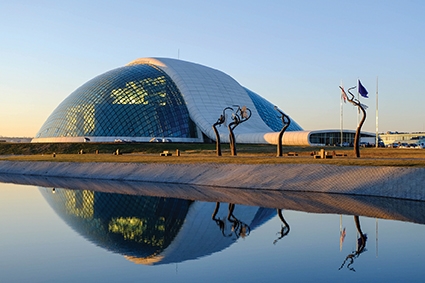Looking ahead at the 2019 Georgian Political Stage
Op-Ed
The Christmas and New Year celebrations have passed, both Old and New, Catholic and Orthodox, and Georgian politics has moved back from the Supra tables to the office. There was an expectation that the New Year would bring some novelty; that the old trends would become a matter of the past and the year of the “Pink Pig” would signal the start of new processes. But alas, the expectations have not been met and the government and opposition have resurrected the trends of 2018, giving them new life and once again proving that politics recognizes no calendar.
The scandal that arose in 2018 around the appointment of permanent judges continues. The theme of the autocephaly of Ukraine also remains popular, and the accumulative pension reform and freedom of speech have been added to the list. In short, there’s nothing new apart from the unexpected visit from the newly appointed Prime Minister of Armenia, Nikol Pashinyan. No-one could have imagined that Bolnisi would ever host an almost secretive meeting of the leaders of the two countries, a fact that would find its way into international media. We can assume the circumstances are serious to warrant such a visit, but the details have yet to be revealed, as has the official position of the Georgian Church on the autocephaly of Ukraine.
As in 2018, this year too, the Georgian Dream will continue the so-called “balanced” politics in its foreign affairs agenda. With the help of the satellite parties, it will be more confident in spreading the idea that Georgia is victim to a bigger deal and that the West has handed us back to Russia. The ruling party will once again start declaring its Western orientation, but only in words, as it will continue its declared waiting game for something to change: the opposition will not be given grounds to accuse the government of “breaching its pro-Western course.” And this is Georgian Dream’s main goal. The only important process which might be brought to a finale this year is the disintegration of Georgian Dream as a party. The conflict between the new and old members of the party might become grounds for this. At the beginning of last year, everything was the other way around, with the main oppositional party forecasted to fall apart. The former faces of the party nearly left the once-powerful National Movement and its team without a fraction in Parliament. Although the development of events shaped a completely different outcome in the end; whether the trend will touch the governmental party or not is hard to predict.
The current situation of Georgian Dream looks like sweet drowsiness that is destined to meet a rude awakening. And if they do not want to be awakened from their sweet euphoria by the talented and determined people from the opposition, they need to make correct and careful decisions, taking the advice of those who tell them that they should start a dialogue will all political parties. They should build constitutional guarantees for a truly multi-party, pluralist democracy, to be installed before the elections of 2020, which is a time when the strong and respected “players” who still have the power to “balance out” Misha will have a guarantee of building a strong fraction in the new parliament, making the government coalitional. On the other hand, Bidzina Ivanishvili’s promise to stay in government until 2030 might end as early as 2019.
By Zaza Jgarkava
Image by Archeobacteria












